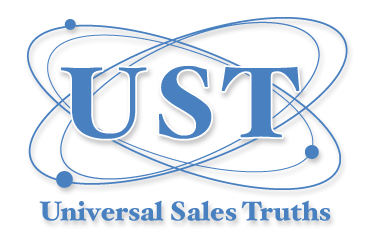From a purely technical point of view, if you buy your customer or prospect a cup of coffee it is considered entertainment. However for most business people entertainment involves paying for things such as lunch, dinner, sporting event tickets, golf, theatre, or in some cases, overnight travel. Entertainment can be a powerful tool if used properly. Used improperly it can be a waste of corporate resources and in some cases provide little or no value.
A professional sales executive should be prudent in the use of corporate entertainment dollars. Said another way he should think of it as his own money. Would you spend your own money to take this prospect to dinner if you didn’t have an expense account? That should help you come to the correct conclusion.
I can’t overemphasize the point that when you use entertainment as a resource, you should never expect something in return. Your client or prospect should never feel that he needs to do business with you because you provide lunches, tickets, dinners, trips, etc. He should want to do business with you because you represent a quality product or service and he likes, trusts, and respects you as the representative of your company. Entertainment is simply a tool you deploy in order to foster your business relationship. It allows you to get to know your prospect or client on a deeper basis. Most times this cannot be accomplished in an office setting.
It has been my experience that most folks, not all, will refuse entertainment if they have no intention of doing business with you and your company. The reason is they don’t want to invest the time and energy with vendors if they don’t see a fit. Time is a valuable asset, and spending time with sales folks when there is no fit is frankly a waste of time. This is good news for you as a professional sales rep—if your prospect is accepting some form of entertainment then there is a reasonable chance he is open-minded about your offerings and wants to learn more.
Getting back to relationship building as it relates to entertainment, from both the salesperson’s point of view and the client’s, it should be genuine. Said another way, in a perfect world, it should be a win-win situation—the client gets a “thank you” for doing business (or for the potential of business) and the vendor enhances his relationship with the client.
In my opinion the offer of some entertainment value that is premature can come off as disingenuous. Let’s use an extreme case to illustrate my point. Say you are making an initial sales call on a major account. You’ve never met the prospect before. You have a very positive first meeting and arrange for a follow-up session. As you are leaving his office, you ask him if he would like to go to the Super Bowl with you. What do you think his reaction would be? Talk about trying to accelerate the sales process! Do you think the prospect might think you are trying to BUY his business? This is NOT a relationship building gesture.
To a lesser degree asking a prospect to dinner after an initial sales call in most cases is premature. Dinner involves a significant amount of time after business hours. This cuts into your prospects personal time. Additionally, for a prospect to want to spend an evening out with a sales rep he most likely would want to have several in office dealings before he would accept a dinner invitation.
However, if you offer to take a prospect to a fine restaurant after just one sales call and he accepts—it might say something about your prospect. It might say he is looking for a free meal. Be cautious and don’t assume you are making solid progress.
Quality entertainment is a process. First you need to build a connection with your prospect. You want him to feel comfortable with you as a person as well as a vendor. Then, when the relationship starts to mature, you can begin to add various types of outside-the-office activities that provide the opportunity to foster a long and successful business relationship.
Entertainment should never be deployed because you expect business in return. It should be used to enhance your business relationship as well as build trust and respect.
The topic of entertainment is one of my favorites. If deployed with the intention of fostering a long term business relationship it can be well worth the investment. I spend a significant amount of time reviewing the concept in chapter 10 of the book. I believe it is critical to long term success and is a component of “Universal Sales Truths”. As discussed – sales is not a sprint but a marathon. There are few shortcuts to a successful long term career in professional sales. UST is dedicated to this truth.
